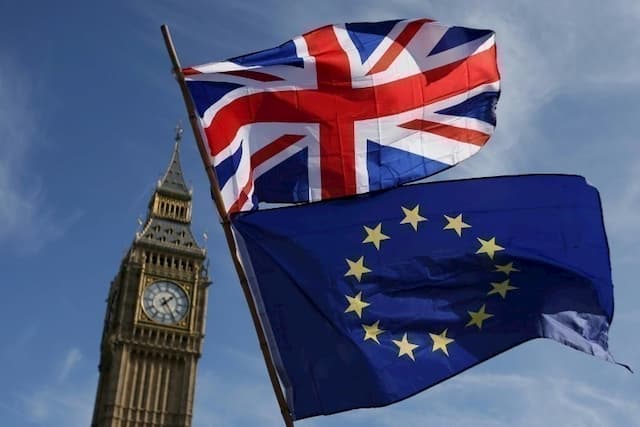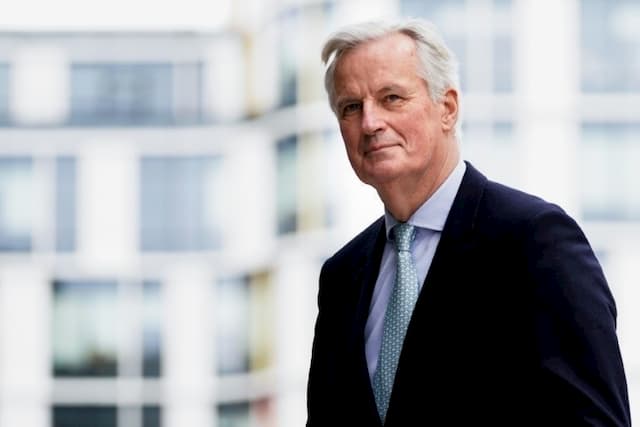EU and London Join Post-Brexit Battle

The European Union and the United Kingdom must agree on the new contours of their relationship, in particular on the commercial level. Fishing is a major issue.
The European Union and the United Kingdom embark on Monday 3rd February 2020 in the post-Brexit battle by displaying the red lines of their future relationship, which remains to be built at the cost of arduous and already tense negotiations.
The two parties must agree on the new architecture of this relationship, in particular, commercial, the core of the discussions.
“Access to our markets will be proportional to the commitment made by the British to comply with a certain number of rules”, recalled on France Inter radio European negotiator Michel Barnier on Monday, stressing that there would not be of trade agreement if there is no agreement on fishing.
🔴#Brexit : @MichelBarnier présente le projet de mandat de négociation de la Commission pour les prochaines négociations avec le Royaume-Uni ↓ https://t.co/OQ0t82L45w
— Commission européenne 🇪🇺 (@UEFrance) February 3, 2020
A toll-free warning to Prime Minister Boris Johnson who must assert his country’s right to be free from EU rules, according to extracts from an expected speech Monday on his vision for the United Kingdom after the divorce.
“There is no need for a free trade agreement that involves accepting EU rules in terms of competition, subsidies, social protection, the environment or the like,” he said.

Pace
Adding to the difficulty of this tête-à-tête, these negotiations will have to be held at a sustained pace since Boris Johnson refuses to extend the transition period, during which the British will continue to apply European rules.
However, it is during this period, which ends on December 31st, that the talks must take place.
Michel Barnier unveiled the terms of his negotiating mandate on Monday, setting the EU’s priorities and red lines.
The bloc fears more than anything to see the emergence of a deregulated economy at its doorstep.

The European negotiator already knows the pitfalls of the file since he negotiated the Brexit treaty on the terms of divorce, for more than two years.
As its negotiating mandate should not be approved until the end of February by the member states, negotiations will not officially open until the beginning of March.
In this very short period of time, all the subjects between Brussels and the United Kingdom, which has become a third country, cannot be dealt with and Brussels has set priorities.
The negotiations will focus mainly on the economic partnership, in particular the free trade agreement, security issues and the legal system intended to settle disputes.
For Europeans, access to the continent’s single market, with its 440 million consumers, will be conditioned by compliance with health, environmental, social and tax standards, not to mention those on state aid to businesses.
This market is crucial for London since the EU remains its main trading partner.
The Europeans want to conduct negotiations in parallel on all subjects in order to limit the risk of divisions, from which the British could take advantage.
Fishing, vital for several states
Fishing, which the two parties have promised to agree on before July 1, will be one of the highly sensitive subjects of the negotiations.
Fishermen from several member states, such as France and Denmark, are dependent on British waters. The latter represents 30% of the turnover of French fishermen.
For his part, Boris Johnson stressed that “regaining control” of these fish-rich waters was of primary importance and promised “a fantastic new national fishing policy”.
Fishing could constitute a currency in these discussions, for example for access to the continent of British financial services, crucial for the City of London.
France will be “extremely vigilant” on this issue, warned Paris.
A first assessment will be drawn up at the end of June, which should make it possible to assess the risk of a “no-deal”, a spectre which will continue to hover, with its disastrous consequences, over the discussions.
Read also: Brexit: after the decision of Guernsey, the fishermen of Cherbourg threaten to block the landing
Enjoyed this? Get the week’s top France stories
One email every Sunday. Unsubscribe anytime.


